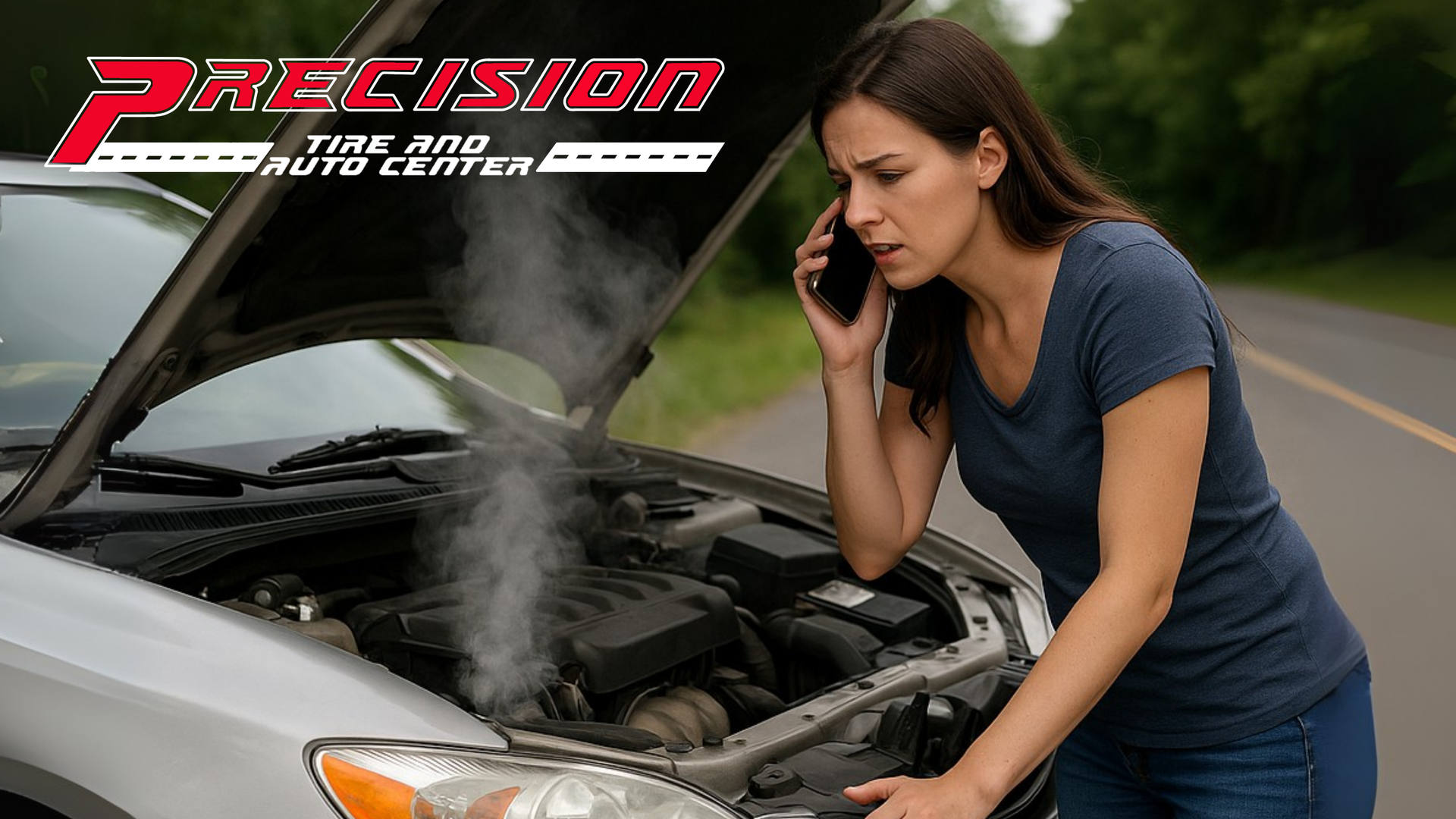Car overheating in Phoenix? Learn the warning signs, common causes, and how our trusted North Phoenix shop can help.
Living in Phoenix you know that triple-digit temperatures are inevitable, and they take a serious toll on your vehicle. These extreme temperatures have your engine working harder just to keep things running properly. While cars are built to withstand heat, Arizona summers can push even the most well-maintained engines to their limits. If you notice your temperature gauge rising, steam coming from under the hood, or you’re A/C stops blowing cold air, your vehicle could be overheating. At Precision Tire and Auto Center, we see overheating issues spike every summer. Here’s what’s causing it, what to do when it happens, and how to avoid it altogether.
Why Overheating Happens in Arizona Heat
So, why are Arizona vehicles more susceptible to overheating. To put it simply – it’s hot. And we don’t mean warm, we mean seriously hot. The combination of dry air, long commutes, stop-and-go traffic, and scorching pavement temperatures make it tougher for your vehicle to cool itself properly. Since your cooling system is responsible for regulating your engines temperature, even minor problems can cause your vehicle to overheat more easily in extreme conditions.
Overheating is commonly caused by low coolant levels, small leaks, or a worn-out part like a hose, fan, or thermostat. While that’s not always the case, it’s still important to have these components inspected regularly to avoid unexpected breakdowns. The extreme and consistent heat in Arizona also puts added stress on your radiator and water pump, which can eventually lead to failure, even in newer vehicles. In many cases, this is an issue all vehicles face, even the new ones. In many cases, you may not notice there’s a problem until you’re stuck in traffic or climbing a hill, when your engine is working its hardest.
Signs Your Car May Be Overheating and What to Do
Some signs of overheating are obvious, like white steam or a dashboard warning light. But other symptoms are easier to miss. If your A/C suddenly loses its cool, your engine feels sluggish, or you catch a whiff of something sweet (a common sign of leaking coolant), your car might be trying to warn you. The sooner you act, the less risk there is of engine damage.
If you are starting to notice any of these signs, it’s important to stay calm. Turn off your A/C immediately and switch the heat to full blast. This helps to draw heat away from the engine. Next, pull over safety and shut off the engine as soon as possible. If you’re thinking about checking under the hood, make sure the engine is completely cooled before opening the radiator cap. Pressurized coolant can spray out and cause serious burns.
If you are nearby, give us a call. We’ll be able to let you know if it’s safe to drive in or if it’s better to have you towed.
Prevent Overheating Before It Starts
Well, the good news is most overheating issues are completely preventable with regular maintenance. If it’s been a while since you have your cooling system inspected, now is the time! With summer in full swing, you don’t want to be left stranded in 120-degree weather.
A thorough, professional inspection can catch small issues like coolant leaks, worn belts, or fan issues before they turn into costly repairs. Flushing your coolant every 30,000 to 50,000 miles, replacing old hoses, and keeping an eye on your temperature gauge can all go a long way toward keeping your engine, yourself, and your family protected on the road.
At Precision Tire and Auto Center, we tailor our recommendations to Arizona drivers. We know how hard the desert heat can be on your vehicle, and we’ll walk you through every step to keep your engine running smoothly.
Don’t wait for a roadside emergency. Schedule your cooling system check today and finish the summer with confidence.

